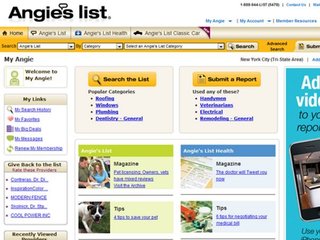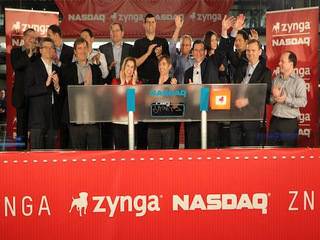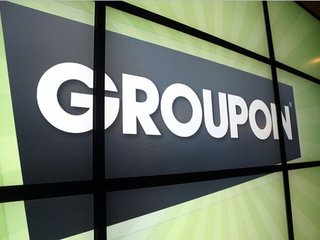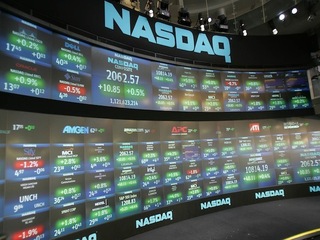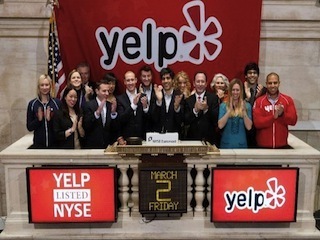Global AI in healthcare market expected to rise to $164B by 2030
The market size for 2023 was $10.31 billion
Read more...
The big day finally arrived yesterday when Facebook, after months of intrigue and speculation, at last went public.
Anyone expecting a big splash, though, must have been sorely disappointed.
Facebook raised $16 billion for its IPO, the largest ever for a tech company, when it priced its shares at $38.
While Facebook’s stock did manage to rise over 12% to spike at $42.05, it eventually came down again, ending at $38.23, a mere 0.6% rise over its initial price. Not exactly earth shattering. In fact, very anticlimactic - given the hoopla leading up to the big event.
So how does Facebook compare to some other IPOs from the past year?
Given Facebook's size and the publicity surrounding its IPO, its unimpressive first day becomes more stark when compared to some of the other giant IPOs of the past 30 years.
(Image source: cbsnews.com)
The market size for 2023 was $10.31 billion
Read more...At Culture, Religion & Tech, take II in Miami on October 29, 2024
Read more...The company will use the funding to broaden the scope of its AI, including new administrative tasks
Read more...Startup/Business
Joined Vator on
Zynga is the largest social gaming company with 8.5 million daily users and 45 million monthly users. Zynga’s games are available on Facebook, MySpace, Bebo, Hi5, Friendster, Yahoo! and the iPhone, and include Texas Hold’Em Poker, Mafia Wars, YoVille, Vampires, Street Racing, Scramble and Word Twist. The company is funded by Kleiner Perkins Caufield & Byers, IVP, Union Square Ventures, Foundry Group, Avalon Ventures, Pilot Group, Reid Hoffman and Peter Thiel. Zynga is headquartered at the Chip Factory in San Francisco. For more information, please visit www.zynga.com.
Angel group/VC
Joined Vator on
The Carlyle Group is one of the world’s largest private equity firms, with more than $71.4 billion under management. With 54 funds across four investment disciplines (buyouts, venture & growth capital, real estate and leveraged finance), Carlyle combines global vision with local insight, relying on a top-flight team of more than 400 investment professionals operating out of offices in 19 countries to uncover superior opportunities in North America, Europe, Asia, Australia and Africa. While open to opportunities wherever they can be found, Carlyle focuses on sectors in which it has demonstrated expertise: aerospace & defense, automotive & transportation, consumer & retail, energy & power, healthcare, industrial, infrastructure, real estate, technology & business services and telecommunications & media. References and examples of previous work Bob Grady serves on the investment committees of CVP, Carlyle Asia Growth Partners (“CAGP”) and Carlyle Europe Technology Partners (“CETP”). He is based in San Francisco. Bob is a former Director of Blackboard (Nasdaq: “BBBB”) and currently serves on the Board of Directors of Carlyle portfolio companies AuthenTec, The Health Central Network, Ingenio, Panasas, Secure Elements, Verari Systems, and USBX. Mr. Grady is a former director and served as Chairman in 2006-2007 of the National Venture Capital Association (NVCA).Startup/Business
Joined Vator on
Pandora, the leading internet radio service, gives people music they love
anytime, anywhere, through a wide variety of connected devices: laptop and
desktop computers, smartphones, connected BluRay players, connected TVs,
etc. Personalized stations launch instantly with the input of a single “seed” –
a favorite artist, song or genre. The Music Genome Project®, a deeply
detailed, hand-built musical taxonomy, powers the personalization or
Pandora. Using this musicological “DNA” and constant listener feedback
Pandora crafts personalized stations from the more than 800,000 songs that
have been analyzed since the project began in January 2000.
More than 75 million people throughout the United States listen to
personalized radio stations for free on Pandora through their PCs, mobile
phones and devices such as the iPad, and connected in-house devices
ranging from TVs to set-top boxes to Blu-Ray players. Mobile technology has
been a significant factor in the growth and popularity of Pandora, starting
with the introduction of the Apple app store for the iPhone in the summer of
2008. Pandora instantly became one of the most top downloaded apps and
today, according to Nielsen, is one of the top five most popular apps across
all smartphone platforms.
Pandora is free, simple and, thanks to connectivity, available everywhere
consumers are – at the office, at home, in the car and all points in between.
In 2009 the Company announced that Pandora would be incorporated into
the dashboard in Ford cars via SYNC technology; GM has already followed in
announcing plans to integrate Pandora into its vehicles and Mercedes-Benz
introduced their Media Interface Plus device that works with the
free Pandora iPhone app to provide direct control of Pandora from in-dash
stereo controls. This was all great news for the millions of Pandora listeners
who had been plugging their smartphones into car dashboards to listen to
personalized stations while driving. More than 50 percent of radio listening
happens in the car, making it a crucial arena for Pandora.
Today tens of millions of people have a deeply personal connection with
Pandora based on the delight of personalized radio listening and discovery.
These highly engaged listeners reinforce the value Pandora provides to: 1)
musicians, who have found in Pandora a level playing field on which their
music has a greater chance of being played than ever before; 2) advertisers,
who benefit from the multi-platform reach of Pandora, as well as its best
practices in targeting consumers for specific campaigns; 3) the music
industry, which has found in Pandora a highly effective distribution channel;
and 4) automobile and consumer electronics device manufacturers, who have
noted that incorporating Pandora into their product makes it more valuable
to consumers.
Pandora continues to focus on its business in the United States. The radio
arena has never been hotter, thanks to technology that enables radio to be
personalized to the individual and more accessible than ever before. Right
now millions of people listen to Pandora in the United States and we hope
someday to bring Pandora to billions of people around the world.
Timeline:
• 2000 – Tim Westergren’s Music Genome Project begins.
• 2005 – Pandora launches on the web.
• 2008 – Pandora app becomes one of the most consistently downloaded
apps in the Apple store.
• 2009 – Ford announces Pandora will be incorporated into car
dashboard. Alpine and Pioneer begin selling aftermarket radios that
connect to consumers’ iPhones and puts the control and command of
Pandora into the car dashboard.
• 2010 – Pandora is present on more than 200 connected consumer
electronics devices ranging from smartphones to TVs to set-top boxes
to Blu-ray players and is able to stream visual, audio, and interactive
advertising to computers, smartphones, iPads, and in-home connected
devices.
Startup/Business
Joined Vator on
Yelp is the fun and easy way to find, review and talk about what's great (and not so great) in your world. You already know that asking friends is the best way to find restaurants, dentists, hairstylists, and anything local. Yelp makes it fast and easy by collecting and organizing your friends' recommendations in one convenient place.
...the ultimate city guide that taps into the community's voice and reveals honest and current insights on local businesses and services on everything from martinis to mechanics.
...just real people, writing real reviews, and that's the real deal.
...a fun and engaging place for passionate and opinionated influencers to share the experiences they've had with local businesses and services.
...the definitive local guide in the San Francisco Bay Area and a force to be reckoned with in Chicago, New York, Boston, Los Angeles and Seattle. But really, we're everywhere. From Austin to Madison and everywhere in between, reviews are coming in from all over the country!
...word of mouth marketing - amplified. Savvy local marketers now have a great channel to effectively target local consumers.
Since July 2004, co-founders Jeremy Stoppelman (CEO) and Russel Simmons (CTO) and their Yelp crew have been striving to make life better for people who love to patronize great local businesses. Discovering accurate information on local establishments has never been this entertaining. Writing reviews has never been this fun, easy and addictive!
Startup/Business
Joined Vator on
Demand Media is building a different type of new media company. With a proprietary media platform that powers the company's highly-trafficked domains and wholly-owned content media properties, Demand Media leverages cutting edge, user-driven publishing, community and monetization tools in its quest to define the next generation of new media companies.
